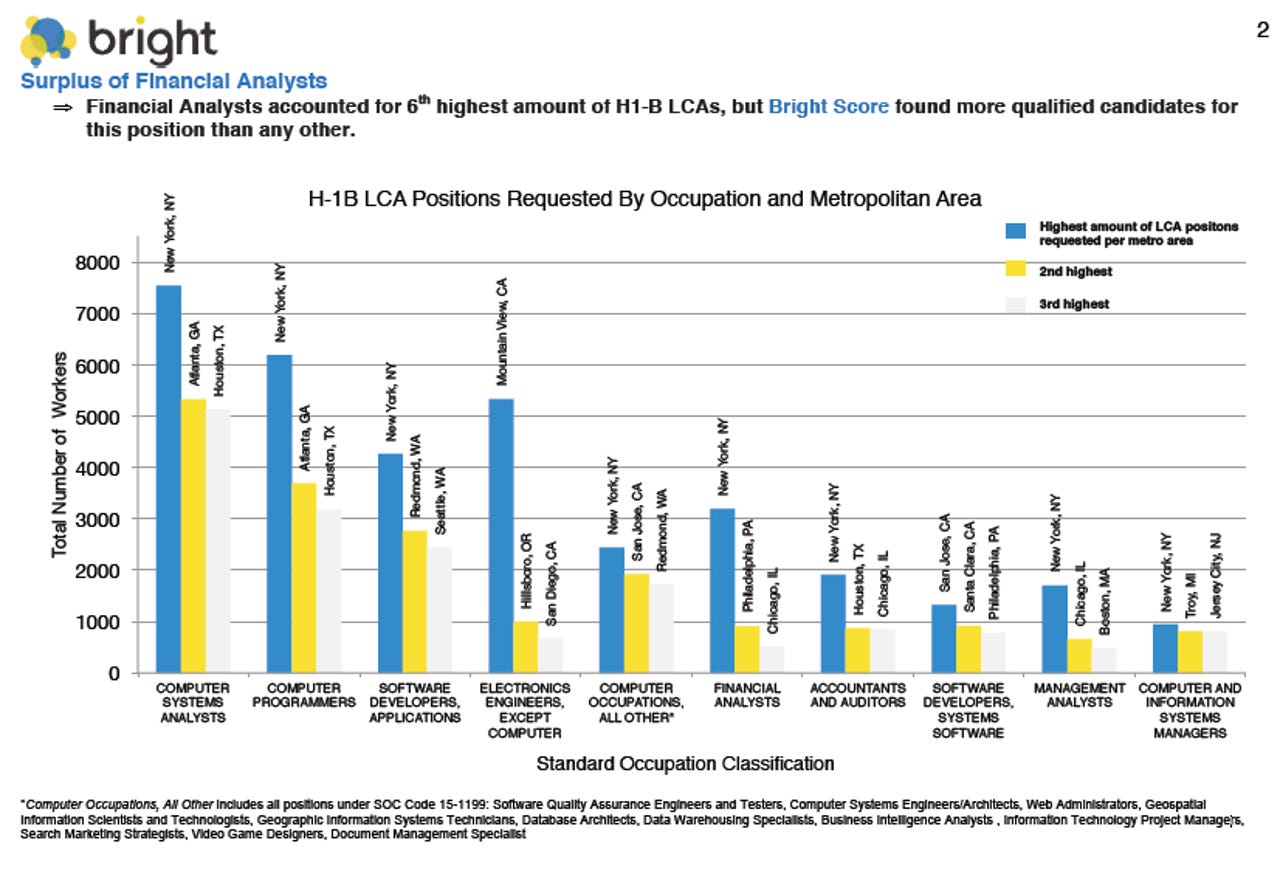Guest workers in tech because of a dearth of qualified candidates? Think again


The U.S. technology industry argues that it must import guest workers from other countries because there is a lack of qualified people to fill computer engineering jobs.
A new report from Bright, a job placement company in San Francisco, suggests otherwise.
Technology companies have long argued on Capitol Hill that they should be allowed to increase the number of temporary H1-B visas because there aren't enough qualified Americans available. Critics such as labor groups argue that the practice depresses wages.
According to Bright, the reality is more complicated. According to its analysis of three million résumés of job seekers in the U.S., Bright says that certain kinds of engineers (e.g. application developers) are indeed in short supply—but other kinds (financial analysts, electrical engineers) are widely available. Yet companies request temporary visas for both kinds of occuptations.
For every temporary visa granted for a legitimately hard-to-find-in-the-U.S. computer systems analyst, there is another visa granted for a not-so-hard-to-find programmer or management analyst.
The vast majority of temporary visas granted are for computer- and mathematics-related occupations. The majority of requests for them come from outsourcing firms "uninterested in domestic candidates," Bright said.
The New York Times sums up the dissonance nicely:
Many economists take issue with the industry’s argument, too. One side points out that wages have not gone up across the board for engineers, suggesting that there is no stark labor shortage. [...]
"We're Silicon Valley people, we just assumed the shortage was true," Mr. Goodman said. "It turns out there is a little Silicon Valley groupthink going on about this, though it’s not comfortable to say that."
This finding doesn't mean those H1-B visas are being granted in vain, however; this analysis doesn't cover whether the granting of additional visas for foreign workers has a positive or negative effect on the overall economy. But it does shoot a few holes in long-held industry assumptions.